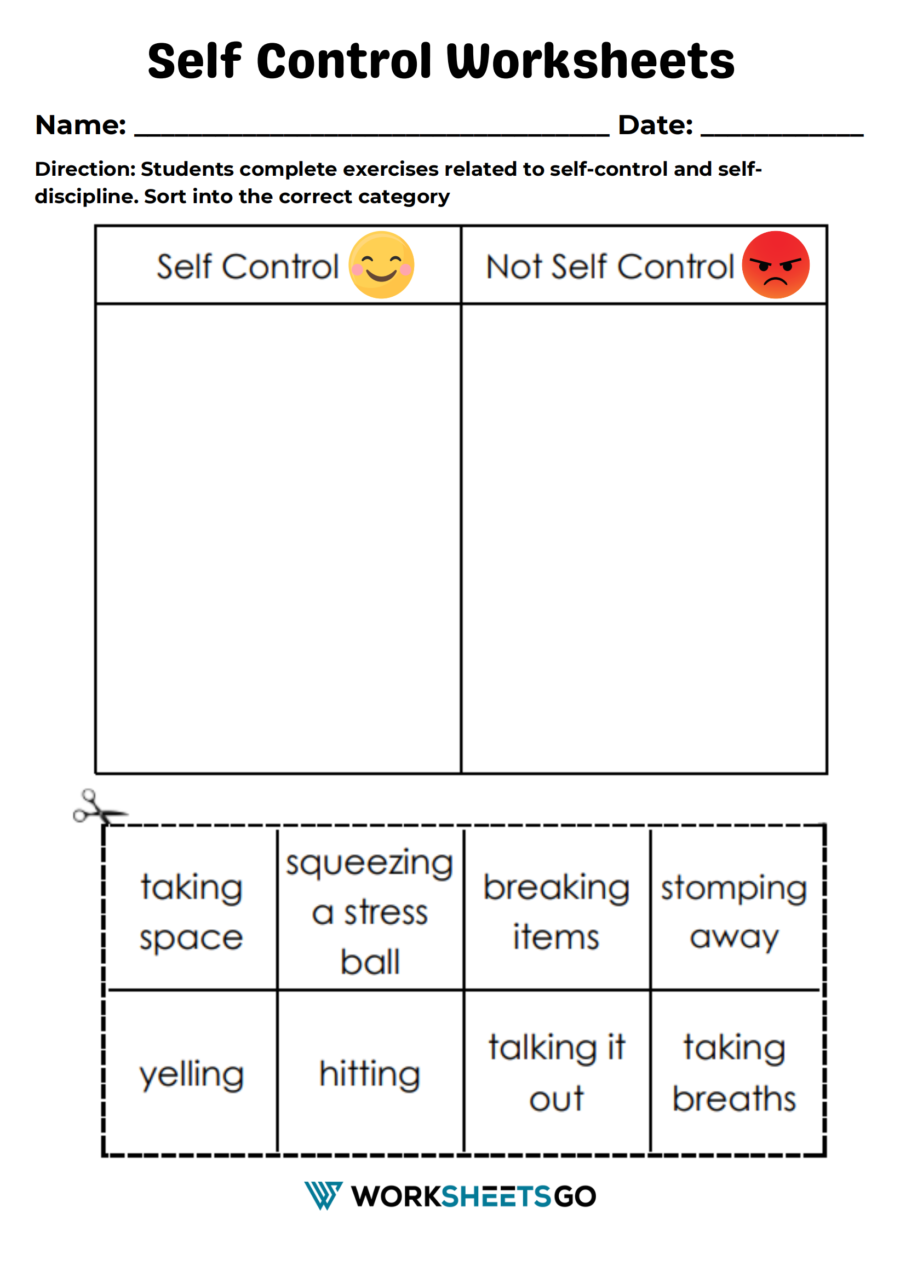Self-control is an essential skill for children to learn, as it lays the groundwork for success both inside and outside the classroom. Our Self Control Worksheets are designed to help children understand the importance of self-discipline and recognize behaviors that demonstrate self-control versus those that do not.
Why Teach Self-Control?
Self-control helps children with emotional regulation, decision-making, and social interactions. By learning to control their impulses, children can make thoughtful decisions and react more positively to challenging situations. This skill is crucial for their personal development and for building healthy relationships.
Overview of the Self Control Worksheets
The worksheets featured in this blog post provide practical exercises for children to differentiate between self-controlled and uncontrolled actions. They offer a clear and engaging way for kids to categorize behaviors and reflect on their choices.
Activities Included in the Worksheets
- Behavior Sorting Exercise: Students are presented with a list of actions, such as “squeezing a stress ball,” “yelling,” and “taking breaths.” They must then decide which behaviors represent self-control and which do not, sorting them into the appropriate columns.
- Discussion Prompts: After sorting the behaviors, children are encouraged to discuss why certain actions are considered self-controlled and why others are not. This discussion fosters a deeper understanding and personal connection to the material.

Using the Worksheets in Your Classroom or Home
- Review the Concept: Start by explaining what self-control is and why it’s important.
- Sorting Activity: Have the children cut out the behaviors and decide where they belong on the worksheet.
- Group Discussion: Facilitate a conversation about their choices, encouraging them to share personal experiences.
- Reinforcement: Praise examples of self-control and discuss strategies for improving in areas where they struggle.
Benefits of Self Control Worksheets
- Promote self-awareness and emotional intelligence.
- Help children learn to manage stress and anger.
- Encourage thoughtful decision-making.
- Foster a positive classroom or home environment.
Self Control Worksheets are more than just a teaching tool; they are a stepping stone to helping children develop critical life skills. By regularly incorporating these worksheets into your educational routine, you can provide a fun and interactive way for children to learn about self-discipline and emotional regulation. The key is to make the activities relatable and to ensure that children understand the long-term benefits of practicing self-control.
Additional Tips
Remember to celebrate the small victories when children demonstrate self-control. Positive reinforcement goes a long way in making these lessons stick. With patience and practice, children can develop a strong sense of self-control that will benefit them for a lifetime.


